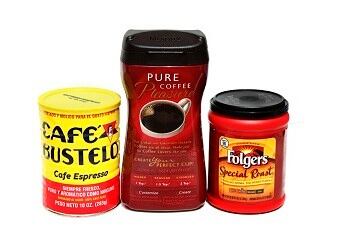“Although acrylamide at high doses has been linked to cancer in animals, and coffee contains acrylamide, current science indicates that consuming coffee poses no significant risk of cancer,” FDA Commissioner Scott Gottlieb said in a statement Aug. 29.
In fact, he notes, “some evidence suggests that coffee consumption may decrease the risk of certain cancers.”
As such, Gottlieb notes that if state officials were to require a Prop 65 warning on coffee it “could mislead consumers to believe that drinking coffee could be dangerous to their health when it actually could provide health benefits.”
He explained that “strong and consistent evidence shows that in healthy adults, moderate coffee consumption is not associated with an increased risk of major chronic diseases, such as cancer, or premature death.”
The letter at times uses threatening language to underscore FDA’s authority to “step in” if it perceives a state’s actions threatens the agency’s mission to ensure food is accurately labeled. However, the posturing seems extreme given the letter arrived the day before California closed a public comment period on a state proposed regulation that would largely exempt coffee from Prop 65 warnings.
An exemption could already be in the works
Earlier this summer OEHHA proposed the beverage’s exemption based on a review of more than 1,000 studies published in June by the World Health Organization’s International Agency for Research on Cancer that found “inadequate evidence” that drinking coffee causes cancer.
As OEHHA noted in the proposal, “IARC found that coffee is associated with reduce risk of cancers of the liver and uterus, and does not cause cancers of the breast pancreas and prostate,” and that “coffee drinking exhibits strong antioxidant effects related to reduced cancer risk.”
Still, the proposal was not a blanket exemption as OEHHA notes “it does not address exposures to listed chemicals that may occur if the chemicals are intentionally added to the coffee mixture or enter the mixture as contaminants in some way other than the process of roasting and brewing.”
OEHHA is accepting public comments on the proposal through today, Aug. 30.
FDA expresses broader doubts about Prop 65
In addition to espousing FDA’s support for the proposal, the letter also casts some doubt on the application of Prop 65 warnings related to acrylamide more broadly.
As Gottlieb noted in his statement, this is not the first time that FDA has chastised California for potentially causing consumers to make unhealthy changes to their diet based on fear spurred by Prop 65 about acrylamide.
“The FDA previously wrote to California stating our concerns about acrylamide warnings” for whole grains, some of which may contain acrylamide, but the benefits of which may out weight any risks, Gottlieb notes. “Labeling whole grain foods with a cancer warning may cause American consumers to avoid foods that would have a benefit to their health, including avoiding foods that may reduce cancer risks.”
Gottlieb goes on to note that “removing any one or two foods from your diet would not have a significant effect on overall exposure to acrylamide,” which is why FDA’s “best advice is that consumers adopt a healthy diet, consistent with the Dietary Guidelines for Americans (2015-2020).”
He closes the letter with what could be another parting shot in the form of a warning that FDA is “dedicated to providing science-based information to consumers in an effort to benefit health and nutrition,” and that it remains “committed to ensuring product labeling provides the most factual, easy-to-understand information needed to inform set selections.


